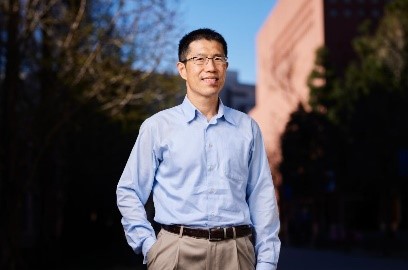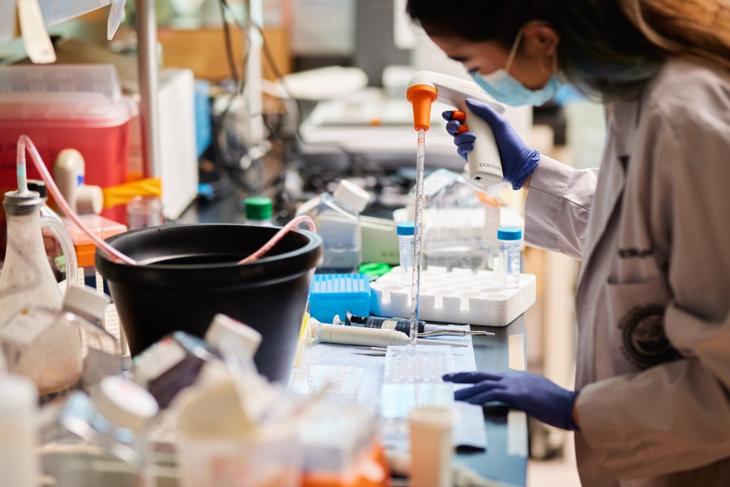Dr. Xuhui Liu and Dr. Brian Feeley, co-directors of the UCSF MITO (Muscle Injury and Translational Orthopedic) research lab located on the UCSF Mission Bay campus, lead pioneering research to unravel the molecular and cellular mechanisms underlying muscle degeneration and regeneration. Last month, the US Department of Defense awarded Dr. Liu $700,000 to fund research in Duchenne muscular dystrophy (DMD). (Photo: UCSF Department of Orthopaedic Surgery)
SAN FRANCISCO (April 3, 2024) — The UCSF Department of Orthopaedic Surgery is pleased to announce that Xuhui Liu, MD, was awarded a Translational Research Grant from the Duchenne Muscular Dystrophy Research Program from the Congressionally Directed Medical Research Programs (CDMRP) of the Department of Defense. This $700,000 grant aims to explore the effectiveness of a beta-3 adrenergic receptor agonist in improving cardiac and respiratory function in Duchenne muscular dystrophy (DMD) using a mouse model.

Xuhui Liu, MD
"In confronting Duchenne muscular dystrophy (DMD), we face not only one of the most severe forms of inherited muscular dystrophies but also the most prevalent hereditary neuromuscular disease," said Dr. Liu. "Regrettably, there exists no known treatment modality that halts disease progression, with the only options for patients at this time being palliative care options.”
The standard of care for DMD patients are glucocorticoid treatments and physiotherapy aimed at preventing orthopedic complications. In the forthcoming study, Dr. Liu will investigate the role of Mirabegron, an FDA-approved beta3 adrenergic receptor agonist, in treating cardiac and respiratory dysfunction and evaluate the combined effects of Mirabegron and the existing standard-of-care glucocorticoid treatment.
“Individuals who are affected by DMD often face respiratory muscle weakness or cardiomyopathy, which can lead to premature mortality in their early twenties. Through our ongoing research, we are committed to changing this narrative and uncovering effective treatments that offer hope and longevity to those battling this devastating condition."
The safety profile of Mirabegron, coupled with its FDA approval, suggests that pivotal preclinical data from this study could expedite the transition to clinical trials, potentially benefiting DMD patients soon.
About the Congressionally Directed Medical Research Programs (CDMRP)
Founded in 1992, the CDMRP fosters novel approaches to biomedical research and fills research gaps by funding high impact, high risk, and high gain projects that other agencies may not venture to fund. While individual programs are unique in their focus, they all share the common goal of advancing paradigm shifting research, solutions that will lead to cures or improvements in patient care, or breakthrough technologies and resources for clinical benefit.
About the UCSF Muscle Injury and Translational Orthopedic (MITO) Research Lab
The UCSF MITO Research Lab is committed to improving patient care through high-quality translational lab research. Dr. Liu and Dr. Feeley have discovered novel mechanisms of muscle stem cell differentiation and are utilizing these mechanisms to enhance muscle regeneration across various pathophysiologies. These include both direct and indirect muscle injuries, as well as genetic musculoskeletal diseases such as DMD and Amyotrophic Lateral Sclerosis (ALS).
###
